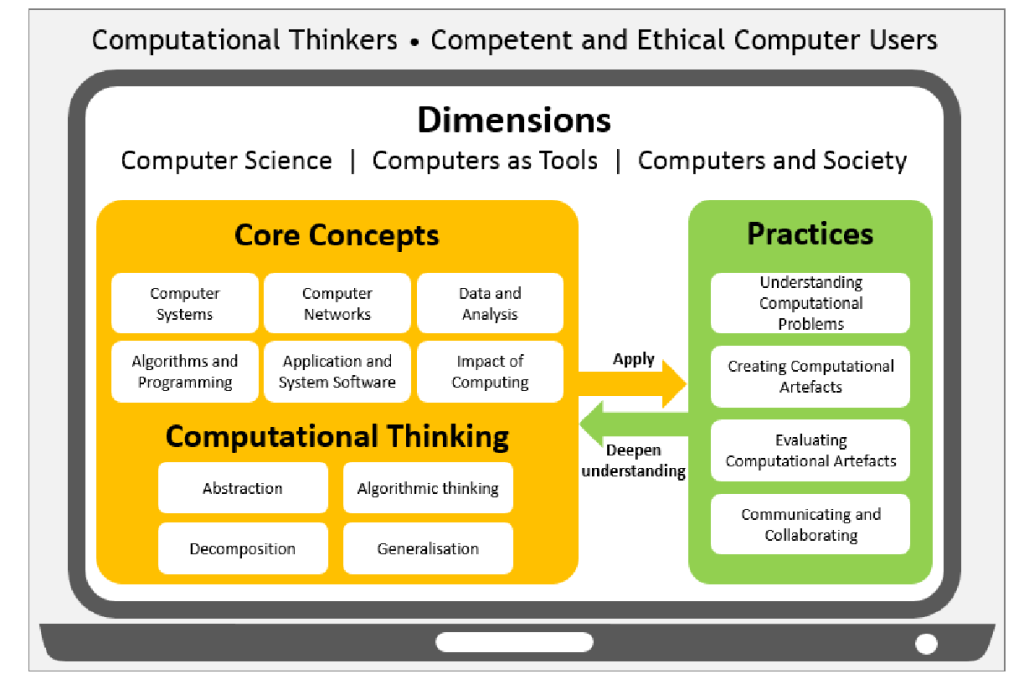Computing
1. Information Communication Technology (ICT) Department
In Peirce Secondary School, ICT department adopts the Computer Education (CE) Framework. An important aspect of the framework is the relationship between the Core Concepts, Computation Thinking and Practices: Core Concepts and Computational Thinking are applied in the Practices, and the Practices will in turn deepen one’s understanding of the Core Concepts.

The CE framework comprises three dimensions:
-
Computer Science
-
Computer as Tools
-
Computers and Society
These three dimensions undergird the broad ideas of systems thinking and computational thinking inherent in the study of Computing.
Computer Science
Computer Science is the study of computers and computing concepts. This dimension focuses on computer systems, networks, data processing and programming.
Computers as Tools
This dimension includes the use of computing devices and computer application software, covering advanced features that allow for task automation and customization.
Computers and Society
This dimension focuses on the impact of computers and technology on society, as well as the ethical, legal and security issues relating to the use of computers.
Peirce Secondary School consists of a passionate group of teachers who are committed to empowering our students to become computational thinkers and competent and ethical computer users, equipped with 21st Century Competencies (21CC) skills. O-Level Computing and N-Level Computer Applications curricula are aligned with the Standards and Benchmarks for 21CC as shown in the diagram below.
|
Competencies and Attitudes |
21st Century Competencies Benchmarks
|
|---|---|
|
Computer Science |
Critical and Inventive Thinking (CIT) |
|
Computers as Tools |
Information and Communication Skills (ICS) |
|
Computers and Society |
Civic Literacy, Global Awareness and
|
2. O-Level Computing (7155)
Computing Key Programme:
Mini Projects are open-ended tasks carried out at the end of Secondary 3 over 6 weeks.
The project will be based on authentic tasks founded on real-world problems. There are 2 proposed implementations for the Mini Project, either hardware-based or software based. In the hardware project, students program microcontrollers to perform real world tasks such as monitoring temperature within an area. In the software project, students may program a game to move a sprite around to collect tokens.
3. Computer Applications (CPA) (7018)
CPA Practical Skills:
|
Module |
Software |
|---|---|
|
Computer Fundamentals (CPF) |
• Google Chrome
|
|
Media Elements (MEL) |
• Inkscape
|
|
Document Processing (DOP) |
• Microsoft Word |
|
Spreadsheets (SST) |
• Microsoft Excel |
|
Interactive Multimedia Communication (IMC) |
• Microsoft PowerPoint |
|
Animation and Game Making (AGM) |
• Scratch |

